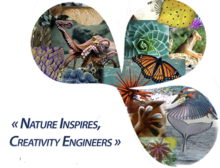Liquefaction of Corn Stover Pellets before Pretreatment by Enzyme Biocatalysis
Use of lignocellulosic biomass in continuous processes in biorefineries poses challenges due to its recalcitrant properties, feedstock variability, and materials handling of solids at large scale. Limitations include lignin derived inhibitors, and resistance to mixing due to rheological properties of lignocellulosic particulates at high solids loadings.
